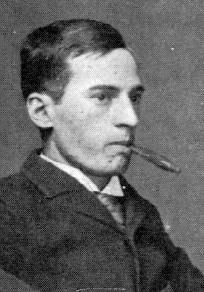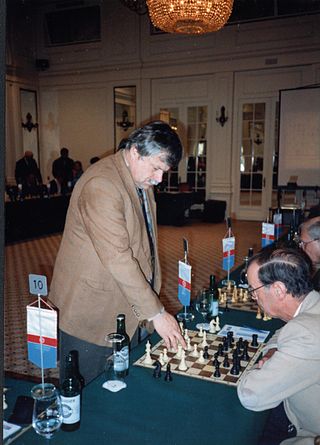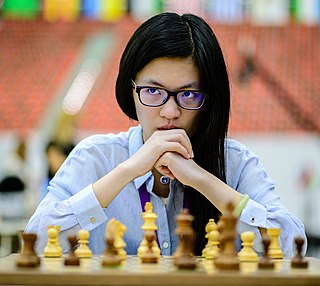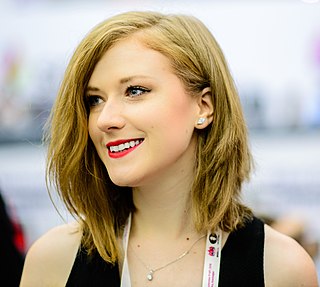Related Research Articles

Judit Polgár is a Hungarian chess grandmaster, widely regarded as the strongest female chess player of all time. In 1991, Polgár achieved the title of Grandmaster at the age of 15 years and 4 months, at the time the youngest to have done so, breaking the record previously held by former world champion Bobby Fischer. She was the youngest player ever to break into the FIDE top 100 players rating list, ranking No. 55 in the January 1989 rating list, at the age of 12.

A chess prodigy is a young child who possesses an aptitude for the game of chess that far exceeds what might be expected at their age. Their prodigious talent will often enable them to defeat experienced adult players and even titled chess masters. Some chess prodigies have progressed to become grandmasters or even World Chess Champions.

Vasily Vasilyevich Smyslov was a Soviet and Russian chess grandmaster who was the seventh World Chess Champion from 1957 to 1958. He was a Candidate for the World Chess Championship on eight occasions. Smyslov twice tied for first place at the USSR Chess Championships, and his total of 17 Chess Olympiad medals won is an all-time record. In five European Team Championships, Smyslov won ten gold medals.

Harry Nelson Pillsbury was a leading American chess player. At the age of 22, he won the Hastings 1895 chess tournament, one of the strongest tournaments of the time, but his illness and early death prevented him from challenging for the World Chess Championship.

Joseph Henry Blackburne was a British chess player. Nicknamed "The Black Death", he dominated the British scene during the latter part of the 19th century. Blackburne learned the game at the relatively late age of 17 or 18, but he quickly became a strong player and went on to develop a professional chess career that spanned over 50 years. At one point he was one of the world's leading players, with a string of tournament victories behind him, and popularised chess by giving simultaneous and blindfold displays around the country. Blackburne also published a collection of his own games.

Vera Francevna Mencikova, was a Russian-born Czechoslovak chess player who primarily resided in England. She was the first and longest-reigning Women's World Chess Champion from 1927 to 1944, winning the championship eight times primarily in round-robin tournaments. In an era when women primarily competed against other women, Menchik was the first and only woman competing in master-level tournaments with the world's best players.
Leonard William Barden is an English chess master, writer, broadcaster, journalist, organizer and promoter. The son of a dustman, he was educated at Whitgift School, South Croydon, and Balliol College, Oxford, where he read modern history. Barden learned to play chess at age 13 while in a school shelter during a World War II German air raid. Within a few years he became one of the country's leading juniors. Barden represented England in four Chess Olympiads. He played a major role in the rise of English chess from the 1970s. Barden is a chess columnist for various newspapers. His column in London's Evening Standard is the world's longest-running daily chess column by the same author.

Blindfold chess, also known as sans voir, is a form of chess play wherein the players do not see the positions of the pieces and do not touch them. This forces players to maintain a mental model of the positions of the pieces. Moves are communicated via a recognized chess notation.

A simultaneous exhibition or simultaneous display is a board game exhibition in which one player plays multiple games at a time with a number of other players. Such an exhibition is often referred to simply as a "simul".

Robert James Fischer was an American chess grandmaster and the eleventh World Chess Champion. A chess prodigy, he won his first of a record eight US Championships at the age of 14. In 1964, he won with an 11–0 score, the only perfect score in the history of the tournament. Qualifying for the 1972 World Championship, Fischer swept matches with Mark Taimanov and Bent Larsen by 6–0 scores. After winning another qualifying match against Tigran Petrosian, Fischer won the title match against Boris Spassky of the USSR, in Reykjavík, Iceland. Publicized as a Cold War confrontation between the US and USSR, the match attracted more worldwide interest than any chess championship before or since.

Hou Yifan is a Chinese chess grandmaster, four-time Women's World Chess Champion and professor at Shenzhen University. She is the second highest rated female player of all time. A chess prodigy, she was the youngest female player ever to qualify for the title of grandmaster and the youngest ever to win the Women's World Chess Championship.

Jacqueline Rebecca Louise Piatigorsky was a French-American chess player, author, sculptor, philanthropist, and arts patron. She was a member of the Rothschild banking family of France.

Anna Rudolf is a Hungarian chess player, chess commentator, livestreamer, and YouTuber who holds the titles of International Master (IM) and Woman Grandmaster (WGM). She is a three-time Hungarian women's national chess champion and has represented Hungary at the Chess Olympiad and the European Team Chess Championship. She has a peak FIDE rating of 2393 and a career-best ranking of No. 71 in the world among women.

Long Live the Queen is a 1995 Dutch children's film written and directed by Esmé Lammers. It tells the tale of a little girl who learns to play chess thanks to enchanted chess pieces. The film was selected as the Dutch entry for the Best Foreign Language Film at the 69th Academy Awards, but was not accepted as a nominee. It also won the Golden Calf for Best Feature Film. The film was dedicated to chess grandmaster Max Euwe, the grandfather of the director.

Susan Polgar is a Hungarian-American chess grandmaster. Polgár was Women's World Chess Champion from 1996 to 1999. On FIDE's Elo rating system list of July 1984, at the age of 15, she became the top-ranked female chess player in the world. In 1991, she became the third woman to be awarded the title of Grandmaster by FIDE. She won eleven medals at the Women's Chess Olympiad.

Viktor Lvovich Korchnoi was a Soviet and Swiss chess grandmaster (GM) and chess writer. He is considered one of the strongest players never to have become World Chess Champion.

Rucha Pujari is an Indian chess player. She is currently a Woman International Master and was previously awarded the title of Woman FIDE Master in 2006.

Qiyu Zhou, also known as Nemo Zhou and her online alias akaNemsko, is a Chinese-born Canadian chess player who holds the titles of Woman Grandmaster (WGM) and FIDE Master (FM), and is a live streamer on Twitch. She has been an under-14 girls' World Youth Champion, a Canadian women's national champion, and a Finnish women's national champion. Zhou has a peak FIDE rating of 2367 and a career-best ranking of No. 100 in the world among women. She is the first Canadian woman to earn the Woman Grandmaster or FIDE Master titles, and has represented Canada at the Women's Chess Olympiad since 2014.

Catherine Belinda Finn was a British chess player. She became the first British Women's Chess Champion in 1904 and defended her title in 1905.
References
- ↑ Revista Ajedrez (Argentina), July 1967, page 235
- ↑ ChessBase: The Beth Harmon that Almost was
- ↑ The chess games of Jutta Hempel. ChessGames.com. Accessed October 18, 2010.
- ↑ Edward Winter, C.N. 7413, Jutta Hempel, 22 December 2011